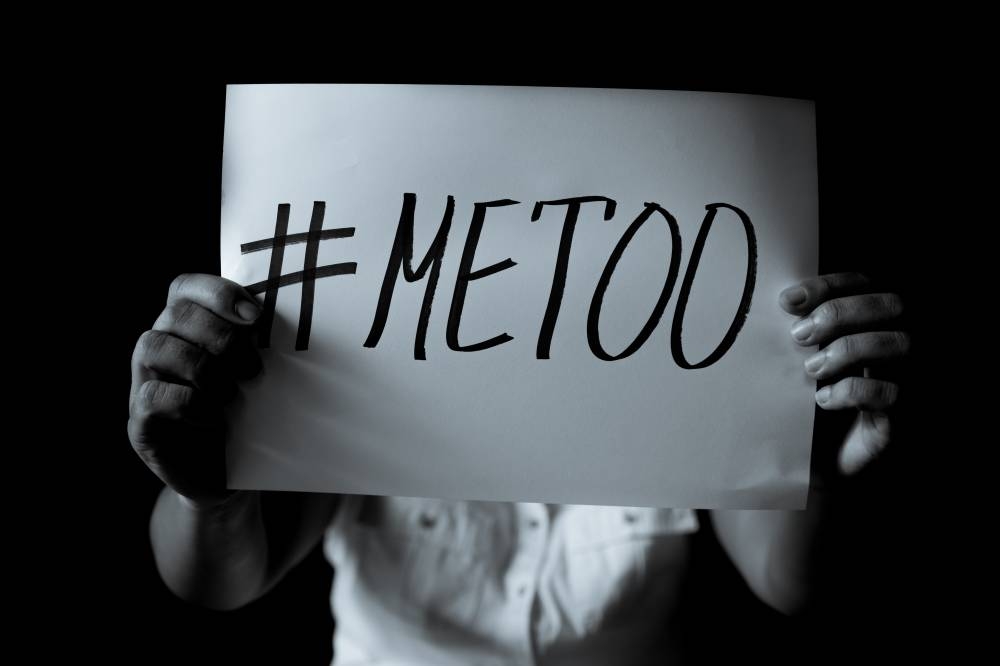Disturbing reality of sexual harassment in educational institutions

We all know that bullying is the most common form of violence in school.
However, a staggering number of children and young teens do not only have to face bullying on a regular basis, but to top that off, sexual harassment, abuse, and misconduct are also major disturbing reality happening in schools and other learning institutions.
Why do so few victims and observers report sexual harassment? Is it true that educational institutions around the world including Malaysia appear to be turning a blind eye towards reports of sexual harassment?
Typically, due of fear of judgment and consequences such as retaliation, these cases are most likely not being reported. Many victims do not report harassment against themselves or others because of fear of retaliation by the harasser or organisation.
There are reasons for this—firstly, research has found that sexual harassment can be trivialised by organisations or result in hostility and retaliation against the victim.
Most of the time, when cases like these are being reported, victims will be openly criticised as being, “too emotional,” “an attention-seeker” or “too sensitive.”
Conservatives would usually give unsolicited advice to victims to remain quiet and resolve the matter privately.
In my personal experience, I have encountered a similar situation. It was while I was getting my driver’s license.
Coincidentally, I had a male instructor who felt that it was necessary to teach me driving by literally putting his hands all over mine on top of the steering wheel.
Imagine having to go through supposedly funny sexual jokes amidst the ride. If it was in the movie, I would have driven off the road into the highway driving as fast as I could and opening the door, kicking him out of the car while driving at 200km/h. Well, this is real life we are talking about now.
When I said nicely, “It is alright, I know how to manoeuvre the steering wheel for driving purposes.”
He replied: "Yeah, kids these days know how to do everything themselves. Wait until I fail you, then perhaps you shall know.”
I immediately report the whole situation to the management and asked for a lady instructor the upcoming lessons moving forward.
Did the problem solve for me? Yes. Did the harassment repeat again? No. Will it continue to affect others after me? Of course. How many more? God knows! Any immediate action taken against the instructor who was guilty? Of course not.
So, what are you supposed to do if you were to be in a similar situation as mine without your phone around:
(1) Be direct, straightforward, and firm about your discomfort. “I do not want you to touch my hand while teaching me. I can follow your instructions clearly even while you are far.
(2) Protect yourself and set clear boundaries verbally or physically by letting them know what they cannot continue doing.
(3) If the action persists after giving one major warning and reminder, report the action and take necessary steps moving forward.
Secondly, another prevalent reason for lack of harassment reports is that the incident happened at a so-called “sentimental” or “proximate environment” to the victim; done by people around them at a place they are very much attached to either willingly or forcefully.
Ironically, the opposite occurred.
Their own siblings or parents, teachers, and people around them whom they should be able to trust and will most likely have to continue meeting for a long time do not affirm their experience and shut them off or even worst, those people are the harassers themselves.
Victims must first overcome their traumatising experience and state of denial. Thus, most interviewees do not want to be known, they only shared their stories anonymously or even prefer to keep it to themselves.
Generally, females are much more likely to experience sexual harassment. However, it can also happen to males.
In my interview with a 19-year-old teenage male student from Seremban, Negeri Sembilan, he explained how he handled a female schoolmate who was making repeated inappropriate remarks and gestures to him: “I was just kind of was dumbfounded. I just really did not expect it. I did not know what to say. At first, I believe I am very traditional and do not want to talk about it or see a therapist. Now that I have talked to you about it, I feel so much better; as if a big burden has been lifted.”
Having worked in a highly male-dominated organisation or masculine-culture in the past, I admit that ignoring or downplaying sexual harassment or inappropriate behaviour may be effective at neutralising the situation in the short term, but it can still have negative long-term effects on one’s health, overall working and studying environment in terms of satisfaction and productivity.
The single most important thing is for us to train our educators and the school community to understand child, teen, and self-safeguarding policies and what can they do to prevent any form of misconduct.
So, let us now draw our boundaries clearly.
Sexual harassment is systemic. It is driven in all sectors and places by imbalances of power.
Harassment is any behaviour, whether physical, verbal, written, or otherwise, that is unwanted and unwelcome, and may offend, or humiliate, an individual. Harassment can be discrimination or abuse of various types.
Often, harassment persists beyond the first incident and happens on multiple occasions.
Therefore, providing better teacher training are key steps to addressing and solving sexual harassment in the education system.
Once they leave school, these boys are going to be husbands, and fathers, and they must be aware of how to become better humans whereas females are going to be wives, and mothers and both genders will have to raise one another accordingly.
Stop with the gender bias when it comes to topics such as sexual harassment and misconduct and be certain that everyone is affected.
The most important journey towards recovery is affirming our own experience; admitting to ourselves and perhaps others that it had happened and talk it out to someone you trust or has no ulterior motives against you.
Write it out in a safely kept journal if you are not ready to share.
I am glad I was able to change my interviewee’s perception by giving the sense of awareness and progressive steps to get over his disturbing past.
Sexual harassment damages the lives, health, prospects, financial independence, and opportunities of its victims, and costs organisations not only legal fees, but lost productivity, morale, effectiveness, and talent.
Break the cycle of sexual abuse, harassment, and misconduct early on, beginning with educational institutions.
Put a stop to both gender-based sexual harassment and sex-focused sexual harassment. May it no longer be a troublingly unresolved problem.
SYAZUIN SAZALI is a Subject Matter Expert in soft skills. She aims to continuously advocate for progressive growth in education. Linkedin & Instagram: @syazuinsazali, Email: [email protected]
The views expressed in this article are the author's own and do not necessarily reflect those of Sinar Daily.












